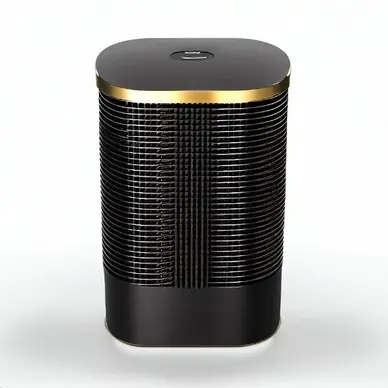
Key Takeaways: What are the common uses of air purifiers?
- Removing allergens
- Removing airborne pollutants
- Eliminating odors
- Reducing asthma and allergy symptoms
- Improving indoor air quality
- Reducing HVAC buildup
Removing Allergens
Air purifiers are commonly used to remove allergens from the air. Allergens such as pollen, pet dander, and dust mites can trigger allergies and cause discomfort. Air purifiers with HEPA filters are particularly effective in removing airborne allergens.
These filters can trap up to 99.97% of particles as small as 0.3 microns, ensuring cleaner and healthier air in your home.
Removing Airborne Pollutants
Air purifiers are also useful in removing airborne pollutants that can cause allergies and respiratory problems. Dust, pollen, pet dander, and other pollutants can be effectively filtered out by air purifiers, creating a healthier home environment.
By reducing the concentration of these particles in the air, air purifiers can help alleviate symptoms and improve overall well-being.
Eliminating Odors
Unpleasant odors from cooking, smoking, or pets can be a nuisance in your home. Air purifiers equipped with filters for gases, chemicals, or odors can help eliminate these unwanted smells. By capturing and neutralizing odor-causing particles, air purifiers can leave your home smelling fresh and clean.
Reducing Asthma and Allergy Symptoms
Air purifiers can be particularly beneficial for individuals with asthma and allergies. By removing allergens and other irritants from the air, air purifiers can help reduce asthma and allergy symptoms.
Breathing cleaner air can lead to fewer asthma attacks, less sneezing, and a decrease in other allergy-related symptoms.
Improving Indoor Air Quality
One of the primary uses of air purifiers is to improve indoor air quality. Indoor air can be more polluted than outdoor air due to various factors such as poor ventilation, chemicals from cleaning products, and off-gassing from furniture and carpets.
Air purifiers can help maintain healthy air circulation indoors by removing pollutants and improving the overall quality of the air you breathe.
Reducing HVAC Buildup
Air purifiers can also play a role in reducing the buildup of dirt and debris inside your HVAC (Heating, Ventilation, and Air Conditioning) system. By capturing particles before they enter the HVAC system, air purifiers help keep it clean and operating at its best.
This can lead to improved energy efficiency and prolong the lifespan of your HVAC system.
Despite the common uses and potential benefits of air purifiers, please note that they should not be relied upon as the sole solution for improving indoor air quality. The Environmental Protection Agency (EPA) recommends using air purifiers as part of a comprehensive approach that includes source control, ventilation, and air cleaning.
Good ventilation, proper cleaning practices, and addressing the root causes of indoor air pollution are essential for maintaining a healthy living environment.
Remember, air purifiers are not a substitute for good ventilation and proper cleaning practices. However, they can be a useful tool for improving indoor air quality and creating a more comfortable living environment.
Air purifiers have become increasingly popular for their ability to remove harmful particles, allergens, and unpleasant odors from the air. They offer a range of benefits, including improved air quality, reduced allergy symptoms, and a more pleasant living environment.
However, please remember that air purifiers should be used in conjunction with other measures, such as proper ventilation and regular cleaning, to ensure optimal indoor air quality.
By understanding the common uses of air purifiers and incorporating them into your home, you can create a healthier and more comfortable living space for you and your family.
Links and references
- Air Purifier: Property, Assessment and Applications
- A review of general and modern methods of air purification
- Effects of the Use of Air Purifier on Indoor Environment and Respiratory System among Healthy Adults
- Assessing effectiveness of air purifiers (HEPA) for controlling indoor particulate pollution
- A Review of Selected Types of Indoor Air Purifiers in Terms of Microbial Air Contamination Reduction
- Guide to Air Cleaners in the Home
My article on the topic:
Frequently asked questions about air purifier
Related articles:
What is the proper way to use an air purifier?
What are the functions of an air purifier?
What are air purifiers, and what do they do?
How long can i expect an air purifier to last?
How long does it take for an air purifier to start working?
How many hours should i run an air purifier?
How frequently should i change the filter in my air purifier?
Did you find this article useful? I bet others will too.


